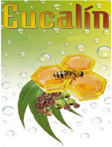The Trademark Trial & Appeal Board (Board) addressed, for the first time, whether the deletion of goods and services as a result of a post-registration audit during a cancellation proceeding triggers Trademark Rule 2.134 and found that it does. The Board required the respondent to show cause as to why its deletion of certain goods from the challenged registration should not result in an adverse judgment. Ruifei (Shenzhen) Smart Technology Co., Ltd. v. Shenzhen Chengyan Science and Technology Co., Ltd., Cancellation No. 92077931 (TTAB Jan. 12, 2023) (Lykos, Lynch, Larkin, ATJ)
Ruifei (Shenzhen) Smart Technology petitioned to cancel a trademark that was registered to Shenzhen Chengyan Science and Technology Co., Ltd. (Chengyan) based on abandonment and fraud. Ruifei thereafter filed a motion for leave to amend its pleadings and concurrently filed a motion for partial summary judgment. Finding that Chengyan did not contest the motion for leave to amend, the Board granted Ruifei’s motion and accepted the proposed amended petition to cancel. The summary judgment motion, however, was deferred, pending Chengyan’s response to the instant order.
After the cancellation proceeding was initiated, Chengyan filed a Section 8 Declaration of Use in connection with the contested registration and received a post-registration office action audit. In response to the audit, Chengyan deleted some of the goods from the contested registration’s identification.
Ruifei mentioned the amendment to the contested registration in its motion for partial summary judgment. The Board, having been made aware of the deletion of goods, held that the amendment raised new issues requiring Chengyan’s input before it could consider the motion for partial summary judgment.
Without the written consent of a petitioner, a respondent’s deletion of goods or services from a registration subject to a pending cancellation action typically would result in judgment against the respondent under Trademark Rule 2.134. The purpose of this rule is to prevent respondents in cancellation proceedings from avoiding judgment by cancelling certain goods or services to render the cancellation action moot.
Trademark Rule 2.134(b) provides respondents with the opportunity to explain why certain goods or services were cancelled under Section 8 to avoid judgment being entered against them:
After the commencement of a cancellation proceeding, if it comes to the attention of the . . . Board that the respondent has permitted its involved registration to be cancelled under section 8 . . . an order may be issued allowing respondent . . . to show cause why such cancellation . . . should not be deemed to be the equivalent of a cancellation by request of respondent without the consent of the adverse party and should not result in entry of judgment against respondent.
The Board had not previously considered a situation in which goods or services were deleted as a result of a post-registration audit but held that the “same concerns . . . and [] policies underlying Trademark Rule 2.134(b) apply.” Accordingly, the Board granted Chengyan 20 days to file a response showing why its deletion of certain goods should not [...]
Continue Reading
read more

 Subscribe
Subscribe






